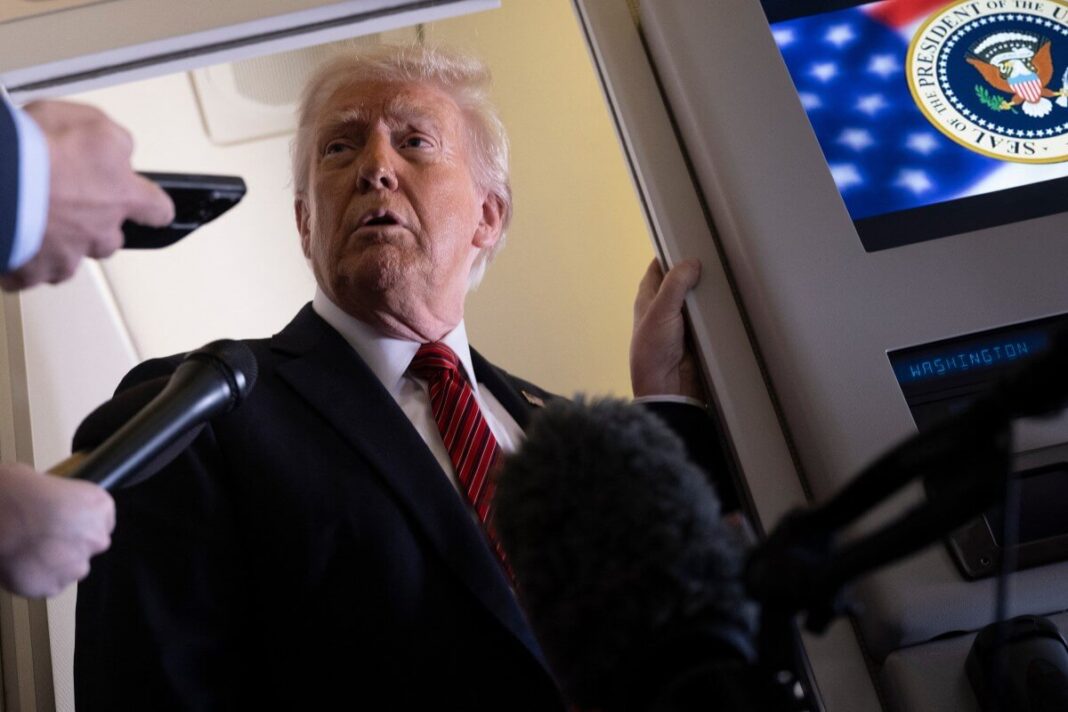The US has approved the sale of $304 million worth of missiles to Turkey as the NATO allies work to strengthen trade and defense ties, Bloomberg reported.
The deal, which still needs congressional sign-off, came as Secretary of State Marco Rubio visited Turkey to attend a meeting of NATO foreign ministers on Thursday. Rubio is expected to travel to İstanbul the following day for potential talks between Russian and Ukrainian officials about a ceasefire.
Turkey has requested 53 advanced medium-range air-to-air missiles at an estimated cost of $225 million and 60 Block II missiles at $79.1 million, the Defense Security Cooperation Agency said. The RTX Corporation will be the principal contractor for the sales.
Turkish President Recep Tayyip Erdoğan has been looking for a tentative meeting with US President Donald Trump to reset strained relations stemming from Ankara’s purchase of a Russian missile defense system and Washington’s support for a Syrian Kurdish militia that Turkey views as a threat to the country, among other disputes.
Turkey and the US have been holding talks over the integration of the US-backed Kurdish forces, who have links to a separatist Kurdish group, the outlawed Kurdistan Workers’ Party (PKK), into a new Syrian army. Earlier this week, the PKK announced it would lay down its arms to end a 40-year war against Turkey, a historic step that could strengthen Ankara’s aspirations to become a regional powerhouse.
The US and Turkey have the two largest armies in NATO, giving them good reason to maintain their seven-decade alliance. As the Pentagon plans to consolidate operations in Syria and draw down troops to less than 1,000, Ankara is offering several thousand Turkish soldiers already stationed across the border to help stabilize its war-ravaged neighbor.
At the same time, Turkey is prepared to assist in monitoring a potential ceasefire between Russia and Ukraine across the Black Sea, in line with the US goal of stabilizing the region.
Turkey has repeatedly expressed its intention to add F-35 warplanes to its planned arms purchases, although this will require the US to lift a ban on Ankara from buying the fifth-generation fighter imposed following its acquisition of the Russian S-400 missile defense system.
Turkey’s purchase of the Russian S-400s resulted in a deadlock with Washington, prompting the latter to impose sanctions known as CAATSA, that targeted the nation’s defense industry and removed it from the F-35 development program.
Ankara has refused to jettison the S-400s as demanded by Washington but has high hopes that Trump could agree to amend the CAATSA to enable Turkey to buy F-35 jets built by Lockheed Martin Corp. Resolving the spat over the Russian S-400 missiles could lead to an unprecedented increase in defense-industry cooperation between the longtime allies.
Outside of defense, Turkey has been considering an increase of liquefied natural gas imports from the US and is working to finalize an order for Boeing Co. aircraft.

